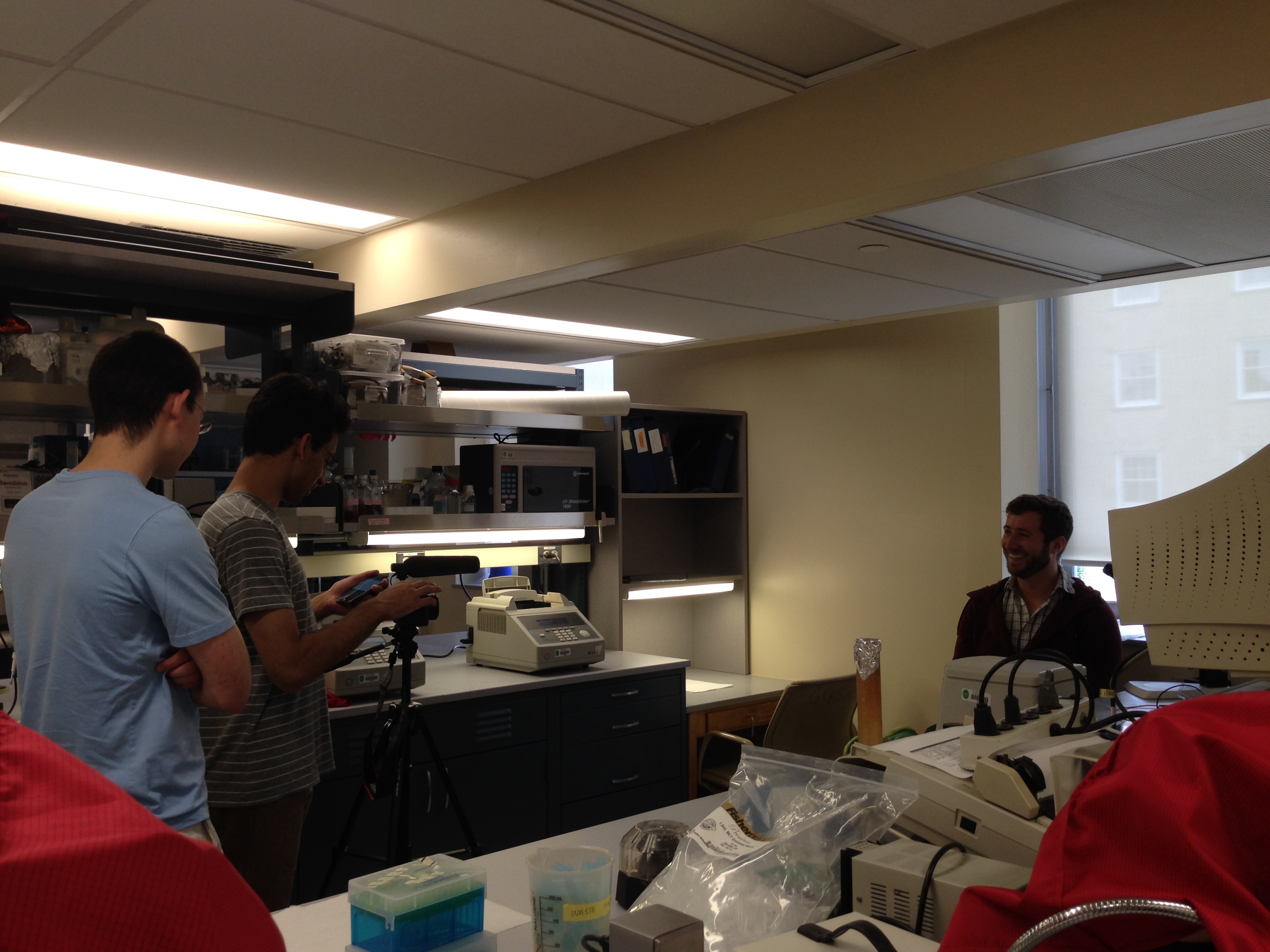Project Results
About This Project
One of the biggest roadblocks to having clear skin is acne, and despite all the effective treatment options available, the mechanisms causing acne are still unclear. The 2014 Pitt iGEM team is improving our understanding of acne by developing a procedure to genetically engineer the skin bacterium, P. acnes, often associated with acne. Using our methods, scientists will be able to manipulate and study this bacterium for the first time.Ask the Scientists
Join The DiscussionWhat is the context of this research?
In the same way the Human Genome Project provided a wealth of knowledge on how our cells function, the Human Microbiome Project (More information here) is shining light on how our cells thrive within a vast microbial community. Research is showing how healthy bacteria contribute to our well-being by protecting our bodies against more pathogenic bacteria.
Propionibacterium acnes is one of these common, healthy microbes, that thrives in the sebum (oil) secreted by the skin of the face, chest, and back. Studies have associated certain strains of P. acnes with acne vulgaris, but the link is unclear. Unfortunately, research on P. acnes is scarce because current technologies for genetic engineering does not work on P. acnes. Our team is hoping to address this problem.
What is the significance of this project?
In the US, 2 million people are infected with antibiotic-resistant bacteria annually, resulting in 23,000 deaths [Source]. Antibiotics are bad for the gut microbiome, and excessive antibiotic use can also chronically impair the skin microbiome. While antibiotics mitigate symptoms of acne, extended use can compromise the healthy diversity of skin flora, leading to inflammatory conditions such as dermatitis and rosacea.
Alternative therapies for acne are necessary to sequester antibiotic resistance. Using our genetic vector, biologists can research skin bacteria and develop new treatments for acne. Our genetic vector will allow for control over the bacteria’s function, which in turn will allow for the study of the bacteria’s natural role, and ultimately the development of skin probiotics.
What are the goals of the project?
In synthetic biology, plasmids are the primary genetic tool used to engineer cells. However, techniques using traditional plasmids have yet to work with P. acnes. The goals of the Pitt iGEM team are to:
1. Engineer a plasmid that will replicate in P. acnes. This plasmid will also be compatible with the synthetic biology standard RFC10, allowing for the simple addition of genes.
2. Optimize a protocol to transform P. acnes with our engineered plasmid using statistical design of experiments.
3. Transfer the following beneficent genes to P. acnes for function as a skin probiotic:
3.2 Aldehyde Dehydrogenase - for destruction of sebum (oil) on skin
3.3 Cathelicidin - for defense against bacterial infection
Budget
The dearth of research on P. acnes is a direct result of the difficult growing conditions for P. acnes. Because this bacteria is anaerobic (P. acnes lives deep in the skin), extra supplies must be bought to culture without oxygen. Even though we have selected cost-effective anaerobic chambers, we still need reagents to remove oxygen.
We also need to buy tools to design our plasmid. DNA primers will be used as a template to design our plasmid in accordance to existing standards, and restriction enzymes will be used to cut and edit our plasmid with new genes. As with all microbiology projects, we also need prep and purification kits to isolate and verify our results.
Meet the Team
Team Bio
This is our team's initial venture into the international synthetic biology competition hosted by the iGEM Foundation. We are a cross-disciplinary group of immunologists, chemists, biologists and bioengineers passionate about advancing medical research. We are also working with graphic designers, film producers and marketing consultants for a project that excels beyond the science.Even though acne is not a life-threatening condition, we still feel that current treatments for acne leave something to be desired. There are very few people who have never had to deal with acne at some point in their lives, and we believe this deserves more attention. We believe that everyone should feel the confidence that comes from having clear skin.
Pitt iGEM
This is our team's initial venture into the international synthetic biology competition hosted by the iGEM Foundation. We are a cross-disciplinary group of immunologists, chemists, biologists and bioengineers passionate about advancing medical research. We are also working with graphic designers, film producers and marketing consultants for a project that excels beyond the science.
We also maintain a blog over at igempitt.wordpress.com, where we write about tips and tricks we have learned from living in the lab.
Additional Information
Lab work in progress:
Film production scenes:


Presentation at Duquesne University Ethics Forum:

Project Backers
- 19Backers
- 108%Funded
- $2,063Total Donations
- $108.58Average Donation
